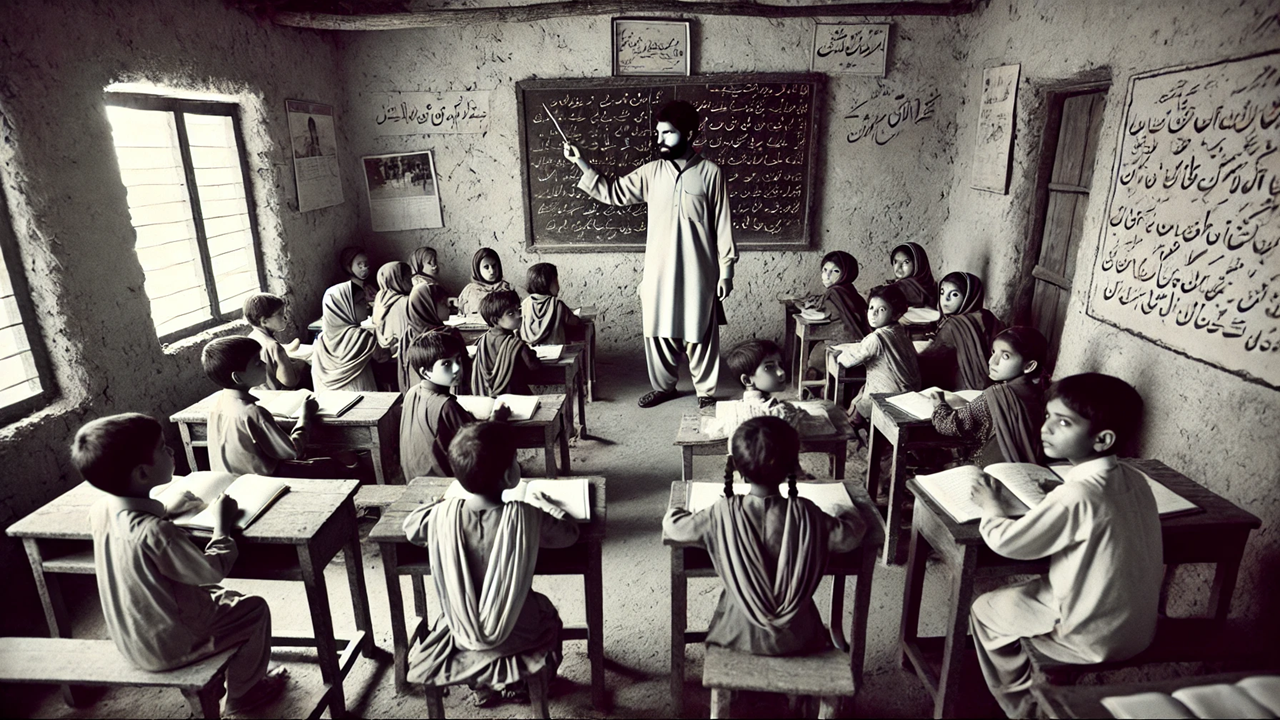Pakistan's Education Crisis: Spend Better, Spend More for a Brighter Future
Pakistan faces critical challenges in its education sector, including low public spending, inefficiency, and deep inequities. The World Bank’s report, “Spend Better, Spend More: How to Make Education Expenditures Count for Children in Pakistan”, highlights that the country needs to boost its education budget while making better use of existing resources. With one of the highest numbers of out-of-school children globally, targeted reforms in funding, teacher effectiveness, and greater equity are essential. Increased involvement from parents and civil society is also critical in driving meaningful change in Pakistan’s education system.

Pakistan’s education system is standing at a crossroads, with millions of children missing out on quality education. A new report by the World Bank, “Spend Better, Spend More: How to Make Education Expenditures Count for Children in Pakistan,” brings attention to the stark reality: the country ranks second globally for out-of-school children (OOSC), with 20.3 million kids missing from classrooms. Even more worrying, 8 out of 10 children under 10 years old cannot read a basic text, signaling a deep crisis of "learning poverty."
The country has made strides in making education accessible, especially for girls, but the system is stretched too thin. Pakistan’s low education spending and inefficiency in resource allocation are severely undermining progress, leaving millions of children behind. The report provides a roadmap for reforms, emphasizing that the key to a better future is both spending more on education and using current funds more efficiently.
A Funding Shortfall That Needs Urgent Attention
One of the core issues holding Pakistan’s education system back is the lack of adequate funding. In 2020, the country spent just 2.1% of its GDP on education, compared to the South Asian regional average of 2.9% and a global average of 4.3%. This funding gap is more than just a statistic—it is a barrier preventing the country from achieving its goal of free, compulsory education for all children aged 5 to 16.
The report stresses that Pakistan must raise its education spending to at least 4.3% of GDP to meet these commitments. Without this, the consequences are dire: more children will drop out of school, learning levels will remain low, and the country’s economic growth will continue to be stunted.
Yet, the solution is not just about increasing the budget. How that budget is spent also matters. The current distribution of funds is problematic, with approximately 70% of the education budget going to salaries. Only a small fraction is used for development purposes like improving infrastructure or teacher training, leaving little room for quality improvements.
Efficiency and Equity: Making Every Rupee Count
Pakistan’s education budget, although limited, is also not used efficiently. Teachers, who are at the heart of the education system, often lack proper support and training. This directly impacts the quality of education children receive. The World Bank report advocates for better teacher recruitment, training, and management as critical steps in making the most of Pakistan’s education budget.
Furthermore, the system suffers from deep inequities. Children from poor families, rural areas, and girls continue to face barriers that prevent them from accessing quality education. To address these gaps, targeted programs that focus on disadvantaged groups are essential. The report recommends using data-driven initiatives to ensure that resources are directed to the areas where they are most needed, thus promoting a more equitable education system.
COVID-19 and the devastating floods of 2022 have only worsened the situation. These crises have disrupted education for millions, increasing dropout rates and widening the learning gaps. As the country tries to recover, the need for efficient and equitable education spending has become even more critical.
The Role of Parents and Civil Society
Reforming the education system cannot be the government’s job alone. The World Bank report highlights the importance of involving parents and civil society in the process. Parents are key stakeholders in the success of any education reform. When families are actively engaged, the system becomes more accountable, responsive, and ultimately more effective.
Formal platforms that allow parents and civil society organizations to participate in education planning and budgeting decisions could make a significant difference. When communities have a voice, they can help shape policies that reflect their needs and values. Moreover, civil society groups can play an essential role in monitoring the effectiveness of government spending and holding authorities accountable for their actions.
A Path Forward
The World Bank report presents a comprehensive reform agenda for Pakistan’s education system, focused on improving efficiency, increasing spending, and making education more inclusive. By addressing inefficiencies in the current system, Pakistan can not only increase access to education but also ensure that every child is receiving a quality learning experience.
However, these reforms require political will, careful planning, and sustained investment. The challenges are vast, but so are the rewards. A well-educated population is essential for Pakistan’s future prosperity. The time to act is now.
- FIRST PUBLISHED IN:
- Devdiscourse
ALSO READ
World Bank Supports Uzbekistan's Economic and Environmental Reforms
East Asia and Pacific Region Continues to Outpace Global Growth, But Slows Compared to Pre-Pandemic Levels, Says World Bank
World Bank Scrambles to Unlock $100M Emergency Funds for Lebanon
Sri Lanka and World Bank Sign $200M Agreement to Bolster Economic Recovery and Resilience
North Macedonia Faces Potential Economic Losses of 4% GDP by 2050 Due to Climate Change, Warns World Bank Report










